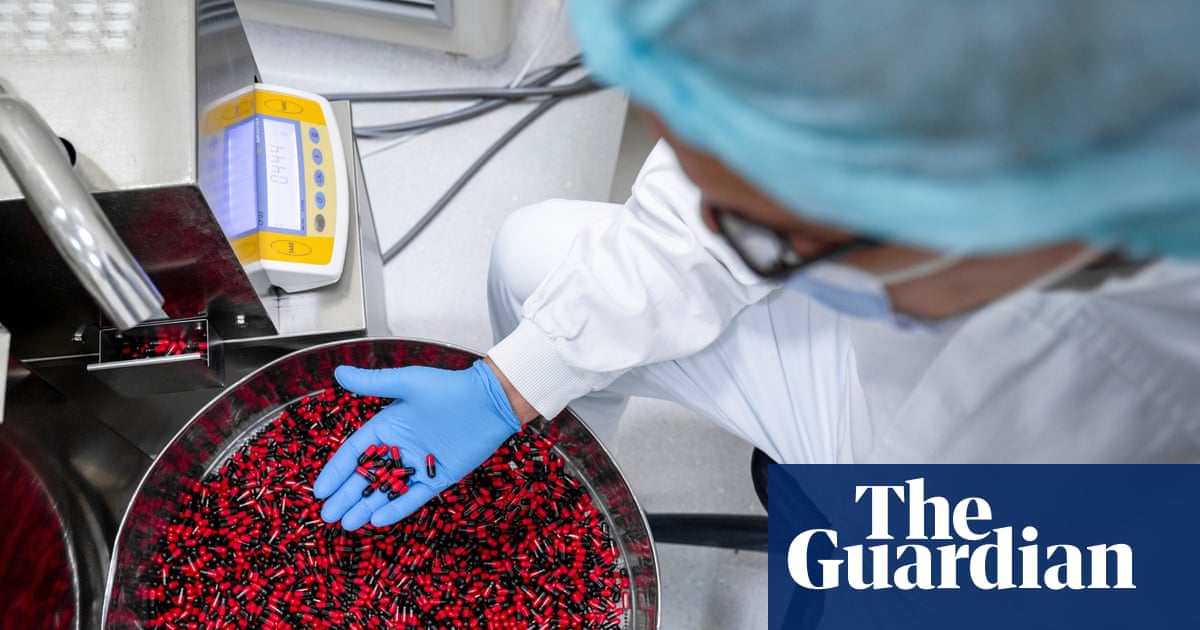People on weight loss drugs regain all the weight they have lost within a year of stopping the medication, analysis has shown.
Analysis of 11 studies of older and newer GLP-1 weight loss drugs by the University of Oxford found that patients typically lost 8kg on weight loss jabs but returned to their original weight within 10 months of stopping them.
The study, presented at the European Congress on Obesity, found that even for those taking newer, higher-dose weight loss drugs such as Wegovy and Mounjaro, people put weight back on once they stopped treatment. While those taking semaglutide (Wegovy) and tirzepatide (Mounjaro) lost double the amount of weight compared with people using older jabs – 16kg on average – patients put on 9.6kg within a year, meaning they could expect to regain all 16kg again in just over 20 months.
The researchers studied 6,370 adults in eight randomised controlled trials and three observational studies. Of these, 1,465 patients were taking semaglutide and tirzepatide – higher-dose jabs recommended specifically for weight loss.
Previous analysis of trials into the efficacy of different diets, not including drugs, by the same researchers, found that while people also regained weight after stopping diets, the rate of regain was much slower, taking at least five years to get back to the weight they were before.
“These drugs are very effective at helping you lose weight, but when you stop them, weight regain is much faster than [after stopping] diets,” said Susan Jebb, the co-author of the study and professor of diet and population health at University of Oxford.
The findings raise issues for the NHS, as Nice guidelines state people should not be on weight loss injections for more than two years. Additionally, many patients give up the treatment, whether because they are buying it privately so cannot afford it, because the side-effects do not suit them or because they are not losing weight any more.
“Is it going to be worth the NHS investing in these drugs if they only have them for a short time and then they pile all the weight back on, or does the NHS have to accept that these are going to be long-term therapies?” Jebb added.
“Either people really have to accept this as a treatment for life,, or we in science need to think really, really hard, how to support people when they stop the drug.”
While the study did not show causality, Jebb speculated that the difference in how fast people put weight back on could be due to the fact that diets are hard and people have to practise restraint to lose weight, whereas if you are taking a drug that knocks your hunger out completely, you don’t have to make that effort. “So when the drugs are then taken away, you haven’t got those sort of behavioural strategies in place that help keep the weight off.”
Responding to the findings, Tam Fry, the chair of the National Obesity Forum, said: “It shouldn’t surprise anyone if people regain weight having used GLP-1 drugs without seriously attempting to improve their lifestyle … Using GLP-1 is not the quick fix which many users believe it to be.”
Jane Ogden, a professor of health psychology at Surrey University, said there was no point “just throwing people back out into the world of their own lives, carrying on their own behaviours from before” after coming off the injections.
“They’re going to need psychological counselling, behaviour change, nutritional support from that moment on to help them sustain healthier behaviour in the long term, to keep the weight off,” she said.
“The NHS should introduce a stepped care approach through online support available to large numbers of people at low cost, online or in-person group support or more intensive 1:1 support.”
Jason Halford, at the European Association for the Study of Obesity, said: “We need to ensure patients have the support to make the changes in their behaviour they need to sustain the benefits of treatment. [Weight loss jabs] are an adjunct to behavioural change, not a replacement.”

 3 months ago
69
3 months ago
69

















































